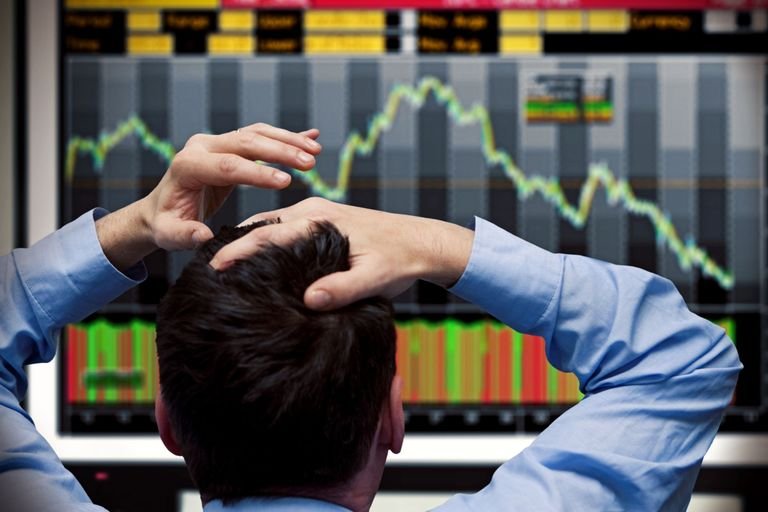
I'm sure many of you have benefited from the rise in cryptocurrency prices and think you are the next market wizard. Some of you may even be contemplating quitting your job and becoming a full-time trader.
There's an old saying in the investing word:
Don't confuse brains with a bull market.
I thought I'd write my first post (possibly one of many) on why trading is not a career choice or investing style you should be considering.
Before I go on, here's a little about me: I've been trading for almost 10 years now. One on those years I was trading fixed income products at a bank and the last 5 years trading full-time for myself and private investors. I heard about cryptocurrencies a few years ago but only recently took a deeper dive into the crypto universe.
Onto the main topic...
We are not built to trade
Countless studies in the field of behavioural economics have shown we don't make rational decisions. Instead, we make quick decisions that are dictated by our emotions. Many studies have also shown that a lot of our decision making process is a snap judgement, which is later justified by our more rational mind.
Here is a brief list of a biases that will impact your decision making when it comes to money:
Prospect theory/loss aversion - we are more sensitive to losing $X than winning the same $X. This bias can manifest itself if a holding onto a losing position too long. The subconscious thinking is, as long as you don't close the trade, you don't take a loss and the pain that comes with it.
Recency bias/Anchoring - we tend to weigh recent information more than older information. e.g. if prices have been rising, we extrapolate this into the future and think prices will continue to rise. Good in trending markets, bad in ranging markets.
Herd behaviour/social proof - we tend to make decisions based off what others are doing. e.g. if others are buying $XYZ, we will be more inclined to buy $XYZ
Overconfidence - everyone thinks they are better than average. If you ask a room full of people, "Who thinks they are better than average at driving?", almost everyone will raise their hands. That can't be the case because by definition, only half the room can be better than average. Similarly, the statistic that 90%-95% of traders lose money, does not stop people from thinking they will be making $$$ in no time.
There's a huge list of these biases and if you would like to read more then Google: Behavioural Economics/Finance.
Don't these biases apply to investing as well as trading? Yes they do. However, trading generally implies more frequent decisions and therefore most instances in which these biases can cause damage to your wealth.
By now you are probably asking, is it possible to fix these problems? yes after years of trading and losing a lot of money you MIGHT become desensitised to making decisions with money.
What about algorithmic trading? It can help but when your algo is in drawdown taking loss after loss, you will be tempted to switch it off. You are still in control of the algorithm. There is not quick fix for mitigating emotional decision making.
Conclusion
Emotional decision making is just one reason why trading is not a good idea. If there's enough interest in this post, in future articles I will cover other reasons trading for a living is no good: variance and drawdown, time commitment vs. opportunity cost and being underfunded to live off your trading capital.
That's all for this post.
If you like what you read, please upvote and follow me :)
Do you think this post should be longer? Shorter? More detail? Less detail? Any trading/finance/economic topics you would like my thoughts on? I'm always looking for feedback, so please comment below!
Nice article. I am a trader, and yes a lot of that did apply to me as well. After losses, I realized that in options trading there are a lot of parameters that one has to look at. Those constraints actually made me a better trader. OI, the Greeks, IV all playing their part for entry and exit not to omit technical analysis on the underlying itself.
I still struggle with emotions from time to time, but through gains I realize quickly that those stressor are unwarranted, and that I must obey my trading plan cause it works. Deviating from the trading plan produces more losses than wins.
So all in all, if a plan is set up on past wins (and losses) and executed one should be profitable. Not having a plan and reviewing all trades is set up for failure.
Upvoted Resteemed
Trade Well,
Chris
Thanks for the comment. Yes a plan is critical to avoid making random decisions, which leads to emotional trading. Most traders either don't have a plan or don't follow it. They don't review trades either.
It sounds like you are on the right path though. Let me ask you a question, would you recommend trading as a full-time job?
Good article. But I think, most people here on steam are so centered into their dreams of perpetual crypto - currency price rise, they will not even click to read your work.
Thanks. Hopefully the post gets upvoted and resteemed more to increase visibility.
Congratulations @shervin! You received a personal award!
You can view your badges on your Steem Board and compare to others on the Steem Ranking
Do not miss the last post from @steemitboard:
Vote for @Steemitboard as a witness to get one more award and increased upvotes!